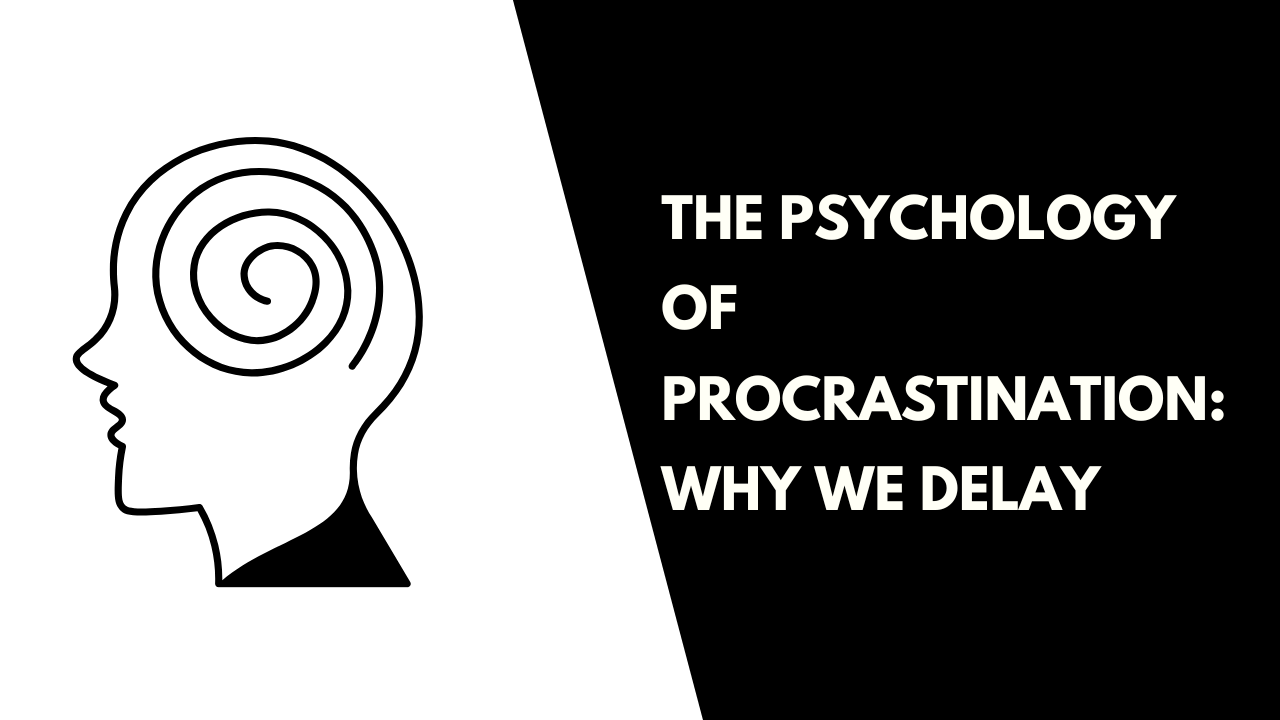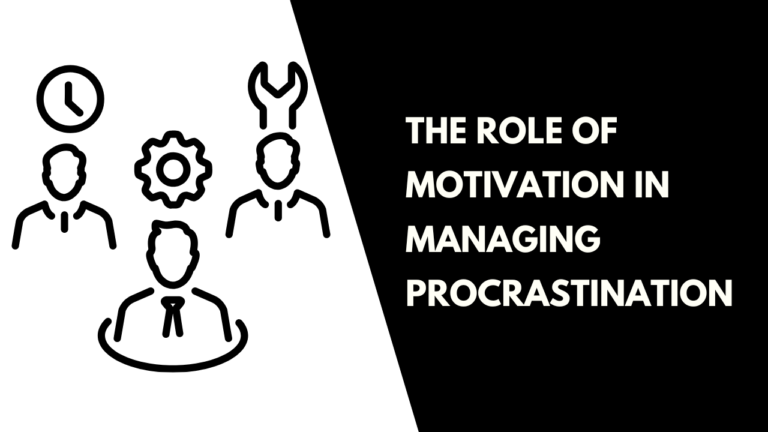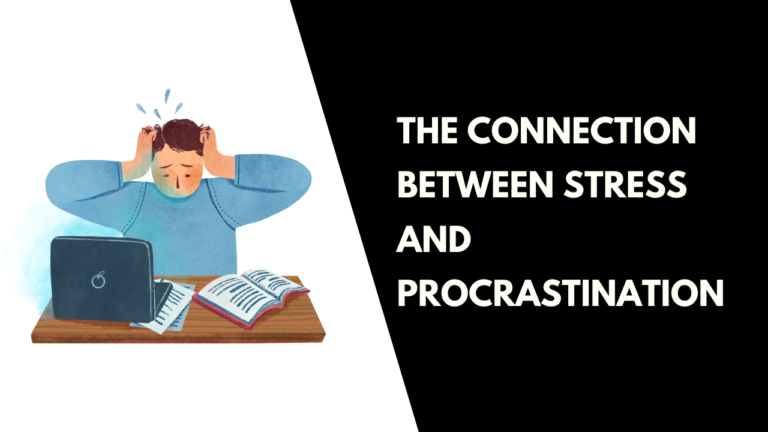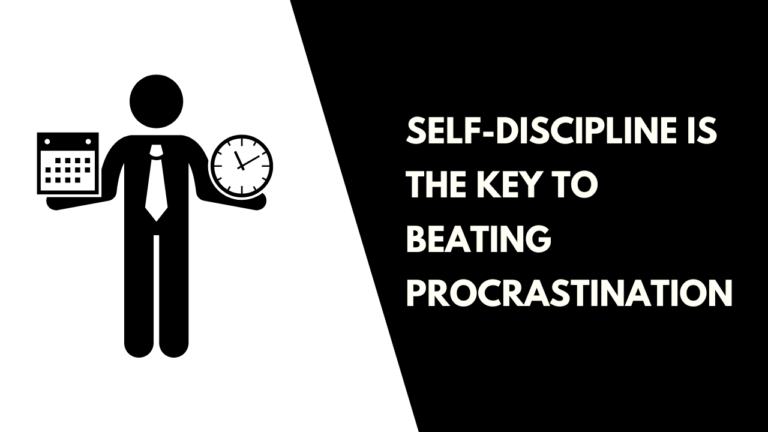The Psychology of Procrastination: Why We Delay
The Psychology of Procrastination: Why We Delay – Best 10 Reasons
Procrastination is a universal phenomenon, and understanding its psychology requires delving deep into its causes and effects. Below is a step-by-step explanation of the outlined topics to clarify the process.
Table of Contents
ToggleIntroduction
Why is procrastination so common?
Procrastination stems from various psychological factors. Common reasons include fear of failure, lack of motivation, or even the thrill of last-minute accomplishments. For example, a student might delay starting a term paper, convincing themselves that the pressure of an imminent deadline will spark creativity.
The importance of understanding procrastination
To combat procrastination effectively, it’s essential to understand its roots. Why do we delay tasks, even when they’re crucial? Understanding procrastination can help us address its emotional and behavioral triggers, leading to improved productivity and mental well-being.
What is Procrastination?
Defining procrastination
Procrastination is the act of delaying or avoiding tasks despite knowing the potential negative consequences. For instance, someone may postpone cleaning their house until guests are about to arrive, creating unnecessary stress.
Differentiating procrastination from simple delays
Not all delays are procrastination. Deliberate delays, such as waiting for more information before making a decision, are strategic. Procrastination, however, is an irrational delay, often driven by emotional factors. For example, putting off a dentist appointment due to fear isn’t a practical delay—it’s procrastination.
The Science Behind Procrastination
The role of the brain in procrastination
The brain’s prefrontal cortex, responsible for decision-making and self-control, often conflicts with the limbic system, which seeks immediate pleasure. This clash explains why we might binge-watch TV instead of completing a report. The reward-seeking limbic system overrides the logical prefrontal cortex.
The connection between procrastination and emotions
Emotional regulation plays a significant role in procrastination. Tasks that trigger anxiety or boredom are more likely to be postponed. For example, someone who fears public speaking may delay preparing for a presentation to avoid confronting their fear.
The Best 10 Reasons Why We Procrastinate
Fear of Failure
Fear of failure paralyzes action. When tasks feel overwhelming, we tend to delay starting them, seeking comfort in easier or less important activities instead. For instance, a budding entrepreneur may delay launching a business out of fear it won’t succeed.
Perfectionism
Perfectionists often delay tasks because their unrealistically high standards make starting or finishing feel overwhelming. A writer might postpone submitting an article, fearing it isn’t “perfect” enough.
Lack of Motivation
Without a clear “why,” tasks feel meaningless, leading to procrastination. For example, a student uninterested in a subject might struggle to begin assignments.
Overwhelming Tasks
Large, complex tasks can feel insurmountable. Breaking them into smaller steps helps. For instance, writing a book feels easier when tackled chapter by chapter.
Poor Time Management
Underestimating the time required for tasks causes delays. For example, someone might schedule only an hour to prepare a presentation that actually takes three hours.
Distracting Environments
Distractions, such as social media or a noisy workspace, derail focus. A worker might intend to start a project but gets sidetracked scrolling through Instagram.
Instant Gratification
Choosing immediate rewards over long-term gains fuels procrastination. For example, watching Netflix feels better than organizing finances in the short term.
Decision Paralysis
Too many choices create indecision, leading to inaction. For instance, someone tasked with designing a logo might procrastinate due to the overwhelming number of design tools available.
Low Self-Confidence
Doubting one’s abilities discourages action. For instance, an artist unsure of their talent might avoid starting a new project.
Lack of Clear Goals
Ambiguity prevents progress. Without clear objectives, tasks seem directionless. For example, “exercise more” is less actionable than “walk 30 minutes daily.”
Effects of Procrastination
Impact on mental health
Procrastination increases stress, anxiety, and guilt, affecting overall mental well-being. Chronic procrastinators may even experience depression.
Consequences on productivity and success
Missed deadlines and lost opportunities result from procrastination. For instance, a job applicant who delays submitting their resume might miss out on a great position.
How to Overcome Procrastination
Developing self-awareness
Recognize procrastination patterns and triggers. Journaling helps identify why and when procrastination occurs.
Setting realistic goals
Specific, achievable goals reduce overwhelm. For example, instead of aiming to “write a book,” commit to writing 500 words daily.
Managing time effectively
Use time-blocking and prioritize tasks. Tools like calendars and to-do lists keep schedules organized and reduce procrastination.
Creating an accountability system
Sharing goals with a friend or mentor encourages follow-through. For instance, telling a friend you’ll complete a report by Friday adds accountability.
Conclusion
Summary of procrastination psychology
Understanding the psychology of procrastination reveals its emotional and cognitive roots. Awareness is the first step toward change.
Encouragement to take proactive steps
Procrastination isn’t unbeatable. With the right strategies, you can overcome it and unlock your potential.
FAQs
What is the root cause of procrastination?
Procrastination often stems from fear, perfectionism, or emotional resistance to tasks.
Can procrastination be beneficial?
In rare cases, strategic procrastination can foster creativity, but chronic procrastination is harmful.
How does procrastination affect mental health?
It increases stress, anxiety, and guilt, leading to long-term emotional strain.
Are there specific strategies for students to overcome procrastination?
Yes! Students can use time-blocking, set specific study goals, and limit distractions.
Is procrastination a sign of laziness?
No. Procrastination is often linked to emotional and psychological factors rather than laziness.
“Stop postponing your dreams! From Delay to Done is your ultimate guide to conquering procrastination. Grab your copy today on Amazon!







